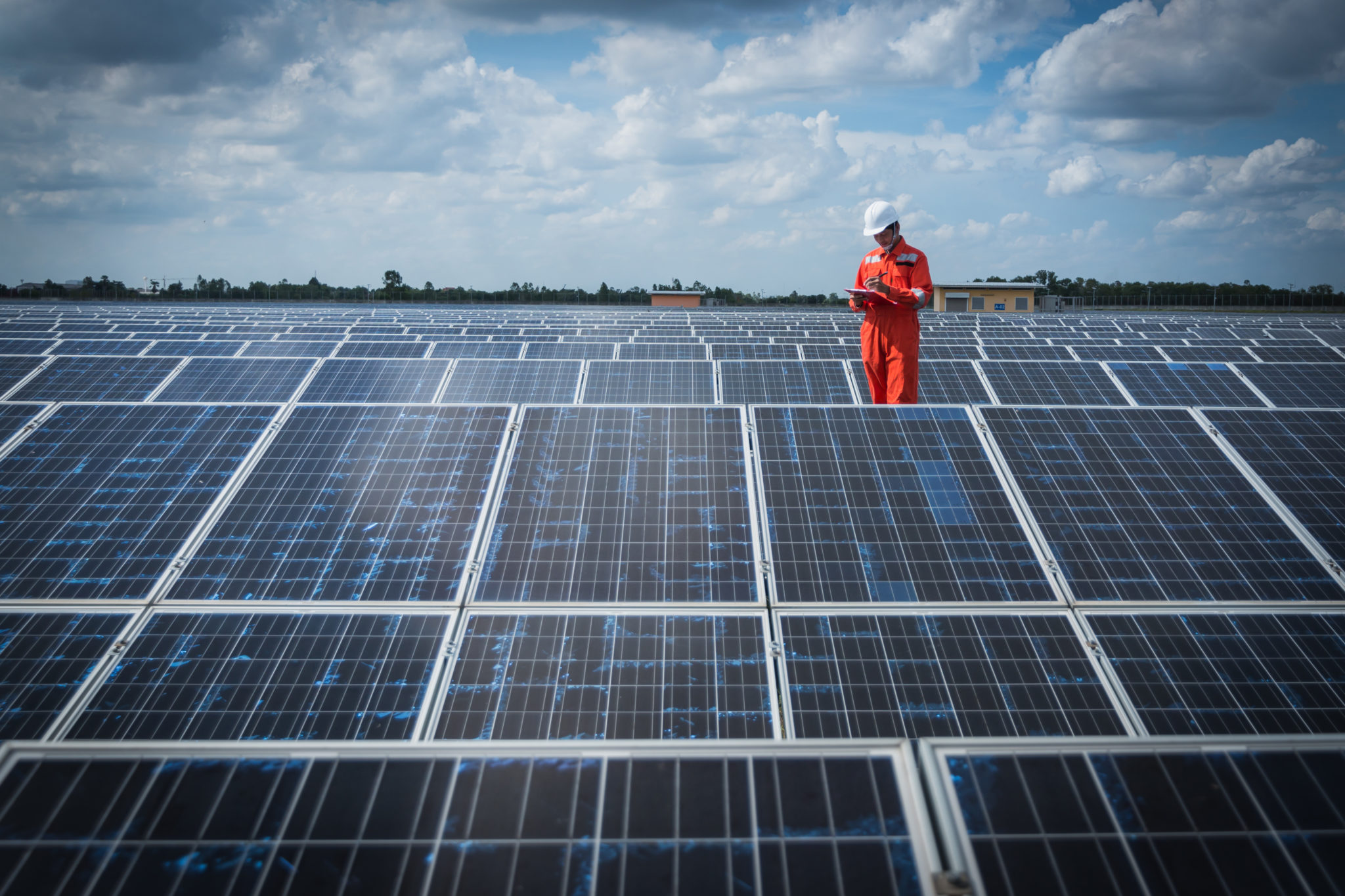The Energy Transition | UK sees lowest recorded carbon intensity, Ofgem to run an informal consultation on RIIO-2 Strategic Innovation Fund, and global renewables capacity jumps by more than 260GW
Published on 9th April 2021
This week we look at the UK recording its lowest ever power grid carbon intensity, Ofgem's consultation on the RIIO-2 Strategic Innovation Fund, a 260GW increase in global renewable capacity in 2020 and more.

UK sees lowest recorded power grid carbon intensity on Easter Monday
On 5 April 2021, the UK recorded its lowest ever level of carbon intensity for electricity use, with carbon intensity dropping to 39gCO2/kWh. Sunny and windy weather conditions paired with low demand for electricity was behind the record low figures.
According to National Grid Electricity System Operator (NG ESO), low-carbon power sources accounted for almost 80% of Britain's total power at 1pm on Easter Monday. Wind energy was the largest contributor, accounting for 39% of the electricity mix, while solar and nuclear delivered 21% and 16% respectively. This meant that emissions dropped to the lowest figure in recorded history, beating the previous record of 46gCO2/kWh set on May 24 2020.
Fintan Slye, NG ESO's director, said that "this latest record is another example of how the grid continues to transform at an astonishing rate as we move away from fossil fuel generation and harness the growth of renewable power sources."
RIIO-2 Strategic Innovation Fund – Informal Consultation on License Conditions
In its final RIIO-2 Determinations in December last year, Ofgem set out its decision to introduce the Strategic Innovation Fund (SIF) across the electricity system operator, electricity T=transmission, gas transmission and gas distribution sectors. Ofgem has now announced that it will hold an informal consultation on license and running conditions that will run until 5 May 2021. The consultation will seek views from stakeholders on a set of draft licence conditions that are required to implement the SIF.
It is hoped that the SIF will support network innovation, which will contribute towards the goal of reaching net-zero. The SIF is also intended to encourage increased alignment of net-zero related innovation, so that activities funded by energy consumers are coordinated with activities funded by the government. This alignment would in turn deliver benefits to both consumers and network companies.
March sees highest ever demand for plug-in vehicles
The Society of Motor Manufacturers and Traders (SMMT) has released figures showing that more plug-in vehicles were registered in the UK during March 2021 than in any previous month.
A total of 17,330 plug-in hybrid (PHEVs) were registered in March, which represents a year-on-year increase of more than 152%. This takes the market share of PHEVs to 6.1% compared to 2.7% in March 2020. A further 22,003 battery electric vehicles (BEVs) were registered during March, representing an 88% increase since last year. Overall, this means that PHEVs and BEVs have a combined market share of nearly 14%, compared to just 2.7% in the previous year.
Mike Hawes, chief executive of SMMT, commented that "new plug-in models are already helping drive a recovery but to convince more consumers to make the switch, they must be assured these new technologies will be convenient for their driving needs and that means, above all, that the charging infrastructure is there where they need it, when they need it".
New global renewables capacity in 2020 beats previous records
According to data released by the International Renewable Energy Agency (IRENA), over 260GW of renewable energy capacity was added worldwide in 2020, beating renewable expansion in the previous year by almost 50%. Francesco La Camera, Director-General of IRENA, said the data showed that "despite the challenges and uncertainty of 2020, renewable energy emerged as a source of undeniable optimism for a better, more equitable, resilient, clean and just future".
Over 80% of new electricity capacity added globally last year was renewable, beating earlier estimates and previous records. Whilst the largest share of renewable energy generated came from hydropower with 1,211GW produced, solar and wind power accounted for the greatest expansion in capacity, making up 91% of new renewable energy generated. Total fossil fuel additions fell to 60GW in 2020 from 64GW in the previous year, displaying a global downward trend in fossil fuel expansion. In the UK, renewable capacity increased to 47,676MW in 2020, up from 46,800MW in 2019.
Octopus launches a new electric vehicle leasing company
Octopus Electric Vehicles (OEV) has launched an electric vehicle (EV) leasing company, Electric Dreams, which offers 100% electric salary sacrifice schemes. OEV reports that drivers who have already signed up stand to save an average of £14,445 over three years under the scheme. Drivers make this saving by forfeiting a portion of their pre-tax salary in exchange for a new EV, and benefit from low benefit in kind tax rates on EVs. This is 1% for the 2021-22 tax year and 2% for the following three years.
The scheme is currently available to 1,491 UK-based employees, with 15 companies (including Huel and Purplebricks) participating. Any company can enrol, and drivers who order prior to July 2021 can have a smart home chargepoint installed free of charge. Octopus Energy customers are also set to receive sufficient free renewable energy to drive 8,000 miles as part of the scheme. Drivers can choose from a range of EV brands including Polestar, Renault, Porsche, Jaguar, KIA, and Tesla Model S vehicles.
Fiona Howarth, CEO of OEV, explained that there has been a seven-fold increase in salary sacrifice enquiries over the past year, with employees and businesses across the UK searching for ways to do their bit for the environment.


